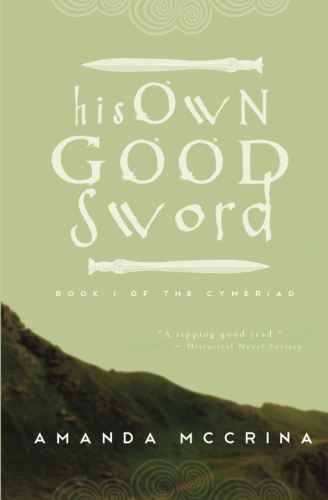As much as I dislike the old adage “write what you know” for the constrictions it places upon writers’ imaginations, in one sense it’s not bad advice at all. As a writer of historical fiction, it’s vital that I have a solid grasp of the context in which I’m writing. A lot of my research will never make it into the novel, of course—I’m writing fiction, not a doctoral thesis. But it’s research I need to do regardless so that my setting feels fully fleshed out and real, the plot appropriate to the setting. In this sense, writing from what I know is a good thing.
But there’s a danger involved, as I’m finding out with my current work-in-progress. To a certain extent Aquae is a very different animal from His Own Good Sword. It’s a fairy-tale retelling, and it’s more typically “historical fantasy”—that is, it’s set in an actual historical time and place (1st-century Roman Britain, to be exact), but with fantastic elements (the main character has supernatural powers). But because His Own Good Sword was set in a psuedo-Roman world, I’ve found that I can recycle a lot of my old worldbuilding research and apply it to Aquae.
The problem is that it’s all too easy to recycle not only research but also dialogue and character mannerisms and turns of descriptive phrase and even the general pattern the plot follows in each chapter. Some of this is probably just a symptom of Second-Novel Syndrome; if I were writing a post-apocalyptic zombie romance as my second novel I’d still probably experience much the same thing. But there are several similarities between Aquae and His Own Good Sword, and not just stylistic similarities. Broadly speaking, it deals with many of the same things thematically: it’s a coming-of-age story; the main character’s relationship with his father is a major part of it. I find myself expressing those themes in the exact same way I did in His Own Good Sword, virtually cutting and pasting relationship dynamics. On a more technical level, I find myself writing descriptive passages that are nearly identical to descriptive passages from His Own Good Sword. I subconsciously model characters on characters from His Own Good Sword because they fill similar roles in the world of the story. It’s just so much easier to go back to preexisting templates than to come up with fresh new ones, especially for minor characters.
Some of it may perhaps be excused, since the world of His Own Good Sword was in fact intended to feel Romano-British. It’s inevitable that Aquae will bear some resemblance to it, especially in the department of trifling historical details. (The cuisine in Aquae very much resembles that described in His Own Good Sword.) But most of it is probably laziness on my part. Aquae and His Own Good Sword are very different stories, but I’m having to be constantly on my guard to make sure I don’t keep slipping back onto familiar ground.

 I'm a student, amateur historian, coffee connoisseur, movie buff, hockey fan, cat lady, and all-around nerd. I'm currently pursuing a degree in history and political science at the University of West Georgia. In my spare time, I write historical fiction and fantasy. My debut YA historical fantasy novel His Own Good Sword was released on 7 May 2013.
I'm a student, amateur historian, coffee connoisseur, movie buff, hockey fan, cat lady, and all-around nerd. I'm currently pursuing a degree in history and political science at the University of West Georgia. In my spare time, I write historical fiction and fantasy. My debut YA historical fantasy novel His Own Good Sword was released on 7 May 2013.


